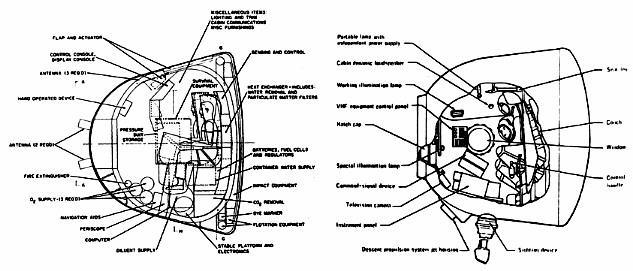But don't be put off by the sensationalist title ( memo : shoot the editor ). It's a good article, and there are real issues that must be faced in the coming years, decades or centuries. (My bet's on at most a couple of decades).
The story's about a conference of the "World Transhumanist Association" :
International academics and activists, they met to lay the groundwork for a society that would admit as citizens and companions intelligent robots, cyborgs made from a free mixing of human and machine parts, and fully organic, genetically engineered people who aren't necessarily human at all. A good many of these 160 thinkers aspire to immortality and omniscience through uploading human consciousness into ever evolving machines.OK, a lot of them are as premature in their expectations as Cyrano de Bergerac was in predicting lunar voyages. Less kindly, they're harmless nuts who want to believe.
But amongst them are people like myself who know a little (no-one knows a lot at the moment) about AI ( Artificial Intelligence ), and/or Biotechnology.
And much of their debate is not about whether we can become artificially intellectually enhanced or not - it's taken as a given by even the most sceptical that eventually we'll be able to rather more than at the moment - but what we should be doing. Or not doing.
Should a fully realized form of artificial intelligence become in some manner enslaved, Hughes adds, "that would call for liberation acts - not breaking into labs, but whatever we can do."I'm agin slavery (except possibly as a temporary punishment) as much as because of its morally corroding effect on the slaver as the effect on the slave. But how do we define "slavery"? And if your personal definition differs from that of the majority, do you have the right and/or responsibility to do something about it? Personally, I've always thought John Brown was a detestable Terrorist who besmirched a good cause. Gandhi's more my style, yea, and Dr Martin Luther King.
"All one has to do is read the science journals to know these issues are on the table today," says Australian High Court Justice Michael Kirby, who serves as a bioethics adviser to the UN High Commissioner for Human Rights and has, along with other dignitaries, discussed the posthuman prospect with French president Jacques Chirac.I'd settle for an injection of human or even subhuman ethics into J.Chirac myself, but I digress.
"One thing I can say with certainty from my experience is that the wheels of law, of the legislative process, grind very slowly within nations and slower still internationally. The progress of science, on the other hand, is ever accelerating. If anything, we've been surprised at how quickly technology has progressed. It's worth taking on these issues intellectually now, rather than in crisis later."Onya Justice Mike. It's worth taking on these issues intellectually now, rather than in crisis later.
Inventor and author Ray Kurzweil argues ... "By the time machines make a case for themselves in a convincing way and have all the subtle cues indicative of emotional reaction, there won't be a clear distinction between machine and human."And I for one happen to agree with him strongly. We don't know how to make a true Artificial Intelligence, we are at a really early stage of knowledge. But we have been able to make neural prostheses for existing NIs (Natural Intelligences) that are surprisingly simple.
Natasha Vita-More, a founder of the trans-humanist movement, says there's cause for vigilance now. "To relinquish the rights of a future being merely because he, she, or it has a higher percentage of machine parts than biological cell structure would be racist toward all humans who have prosthetic parts,"I wouldn't say "racist", but I would say "discriminatory". I find Ms Vita-More a little, er, over-enthusiastic. Maybe even as much as Tsiolkovsky was.
But progress toward these new beings is often overestimated by the transhumanist crowd, applied scientists caution. "Some of these transhumanists are pretty far out of touch with what's going on in the labs. When I tell them that, I feel like I'm smashing their dreams," says Steve Potter, the Georgia Tech neuroscientist behind the hybrot.Yes, it'll be a couple of decades before we have these problems, not years. And much longer before we have a "Plastic Pal who's Fun to be with." But also not centuries.
UPDATE: Just had a look at Instapundit. Good Lord. This is getting ridiculous. FWIW this post was inspired by one at Slashdot which I have to monitor at work for professional reasons.


 That particular shape is probably the best one for ballistic-re-entry spacecraft, and will no doubt be used and re-used in the future. A Soyuz-shaped design that is "enlarged and updated in key areas such as the life-support and computer systems" is a completely new design.
That particular shape is probably the best one for ballistic-re-entry spacecraft, and will no doubt be used and re-used in the future. A Soyuz-shaped design that is "enlarged and updated in key areas such as the life-support and computer systems" is a completely new design.




